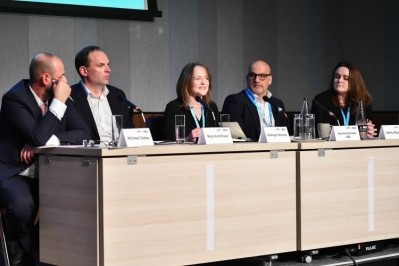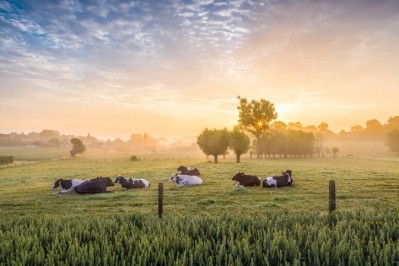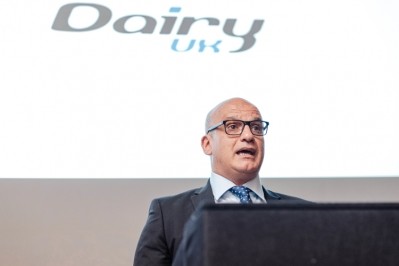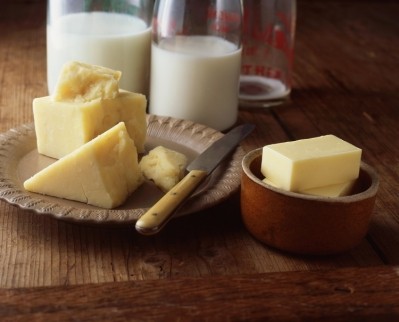Dairy UK targets ‘those questioning dairy consumption’ with consumer-facing campaign
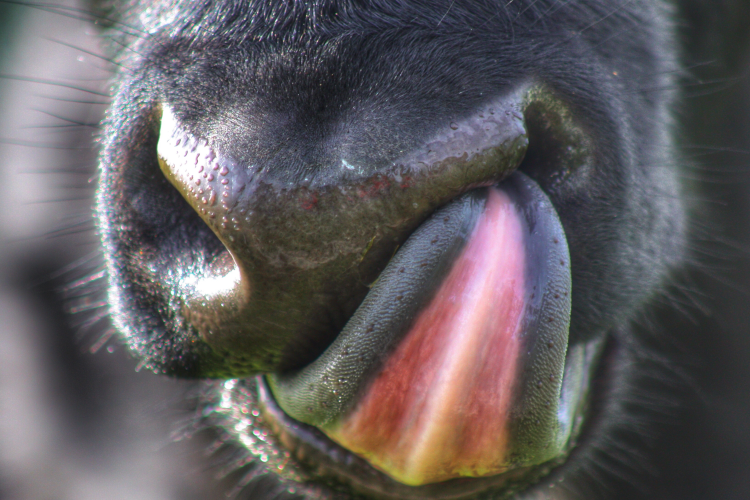
Dairy production carries a sizeable environmental footprint. According to data from the UN’s Food and Agriculture Organization (FAO), the global dairy sector contributes around 4% to total global anthropogenic GHG emissions, including milk production, processing and transportation.
The argument that consumers need to reduce their dairy intake and alter their diets in order to combat climate change is coming through loud and clear. Proponents range from plant-based brands to celebrities. It has even made its way into policy recommendations in the UK – with Henry Dimbleby’s National Food Strategy citing a 2018 study from Joseph Poore and Thomas Nemecek that made this argument. Avoiding consumption of animal products altogether delivered ‘far better environmental benefits than trying to purchase sustainable meat and dairy’, it suggested.
But not all observers are so decisive in their analysis. The UN’s Global Methane Assessment, published last year, found that currently available measures – such as developments in animal nutrition and a reduction in emissions from manure – could help cut emissions from livestock by as much as 45% by 2030. This could help reduce overall emissions by 0.3C of global warming by the 2040s, it concluded.
The FAO also noted that – from biodiversity impact, to methane footprint and water quality – not all systems of dairy production are created equal. Regionally, there are some significant differences for instance, FAO noted. “In comparing the total average life cycle emissions across different world regions, the highest emissions per kg of FPCM were found in developing regions with sub-Saharan Africa, South Asia, North Africa and the Near East with an average of 7.5, 4.6 and 3.7 kg CO2-eq. per kg of FPCM, respectively. Industrialized regions such as North America and Europe, on the other hand, were found to exhibit the lowest emissions per kg of FPCM,” the organisation said.
For its part, the dairy industry claims to be making strides in efforts to reduce environmental damage caused by production. In the UK, 56% of dairy farmers are already taking action to cut greenhouse gas emissions through steps such as improving energy efficiency and eliminating HCFC refrigerants.
Dairy sector efforts range from the development of feed that cuts methane emissions, to energy and plastic reduction, and improved milk yield per animal. And now a UK dairy industry association wants to bring this message to shoppers.
Dairy UK is launching a paid media campaign to highlight progress that the industry has made to reduce dairy’s environmental footprint as part of the UK Dairy Roadmap. Using a mixture of animation and real footage, three thirty-second videos have been created for Facebook, Instagram, YouTube and Google Display. The consumer-facing campaign is expected to reach 2.7 million impressions.
A more nuanced discussion of dairy’s impact?
Dairy UK CEO Judith Bryans explained that the industry body wants to communicate ‘transparently’ with consumers about sustainability issues.
“Being transparent and open with consumers on all pillars of sustainability, including the environment is really important. Particularly as the UK dairy sector has a good story to tell,” she emphasised.
Dairy UK believes that sustainability is something that consumers are increasingly looking at, talking about, and considering when they do their weekly shops.
“We know that the environmental footprint of food is something the public are increasingly interested in and concerned about, and discussions around food and the planet are now commonplace for most young people. Those things are also important to the dairy sector and have been for some time,” we were told.
According to Dairy UK, environmental stewardship is something UK dairy producers have been ‘continuously improving’. However, to date, efforts to communicate progress have focused on talking to the Government and industry stakeholders. “Now it’s time to focus on urban consumers - they want to see our environmental progress and they want evidence-based information on dairy so that they have confidence that we share their desire for healthy people and a healthy planet,” Bryans said.
Targeting dairy sceptics
The campaign sets out to target ‘those who might be questioning their dairy consumption’ by highlighting the ‘environmental values of the sector as a whole’. “We want people to appreciate that yes, like all foods, dairy has a carbon footprint, but a lot of fantastic work has been done to reduce this impact, and there’s even more to come as we actively progress to meet Net Zero.”
Keeping the message positive is important for Dairy UK and Bryans stressed the sector doesn’t want to become embroiled in a tit-for-tat battle with critics. “Advocating for our sector is always going to be more effective than responding to the media or social content who may choose to run negative stories – they aren’t the experts in the dairy field, we are. And we are proud of dairy in the UK and the progress it is making.”
Three key issues: biodiversity, climate and plastics
Dairy UK is concentrating its messaging on the action being taken to reduce climate impact, increase biodiversity and cut plastic waste.
It wants people to understand that many dairy players have signed Climate Change Agreements with the UK government to increase energy efficiency – or see that 43% of farmers already produce renewable energy. The campaign wants to highlight the support dairy provides to biodiversity, with 30,000km of hedgerows and 37,000km of grass margins planted under the Campaign for the Farmed Environment. It wants acknowledgement that plastic milk containers are one of the UK’s most recycled products, with 78% of plastic HDPE milk bottles recycled since 2008, while the average for plastic bottle recycling is 58%.
This doesn’t even cover the UK dairy industry’s environmental undertakings, Bryans claimed. “There’s so much work being done in the environmental space in the UK that it was very tempting for us to try and wrap all of it up and try to tell consumers all of it in one go. However, we know from research that bite sized, specific topics are far easier to understand.
“We also need to work from the angle of what is important to consumers, so we chose to kick-start the campaign with a focus on biodiversity, climate change and plastics because we know they are hot topics. It was only right to provide dairy consumers with accurate information on the things that matter to them, so they can make an informed choice about consuming dairy products.
“There are many other areas in which the Dairy Roadmap is driving forward progress in the environmental space, and we’ll gradually add messages on those areas to the campaign too.”
Does inflation mean sustainability takes a back seat?
Dairy UK is a baker of the UK Dairy Roadmap alongside the National Farmers Union and the Agriculture and Horticulture Development Board. The Roadmap sets a minimum standard for improved environmental standards across the entire UK dairy industry. Last November, it committed UK dairy producers to a range of evidence led targets and detailed a delivery program.
Specifically, its recently launched climate ambition paper set out plans to reach net zero carbon emissions by 2050 and ‘maintain positive actions’ that reduce climate warming caused by methane and nitrous oxides.
However, in the current inflationary climate as farmers grapple with rising production costs, the Roadmap recently issued an extension to its target on carbon auditing. “Reducing our carbon footprint might, understandably, be falling down the agenda for many farmers,” the initiative conceded.
Does this mean sustainability efforts risk losing momentum in the face of spiking on-farm costs?
“Fertiliser, feed, wages, energy, transport, ingredients and packaging to name but a few have all risen rapidly – and that’s when you can get those things, because availability can be an issue. So, it’s fair to say that farmers and processors alike are having a tough time,” Bryans responded.
“The extension of the carbon auditing deadline is a reflection of this reality and gives the farmers who need it more time in order to implement carbon auditing within their businesses. However, the Roadmap remains committed to this as a target, and this is a testament to the fact that the dairy community is dedicated to environmental improvement,” we were told.
The dairy expert stressed that delivering on sustainability efforts is critical to supporting a thriving dairy sector. “Improving the sustainability of farms goes hand in hand with improved efficiencies and ensuring farming businesses have a brighter and more prosperous future. Increasing sustainability at a processing level does the same thing. So, although times are tough prioritising sustainability is a must and, in the end, a win-win for everyone.”
